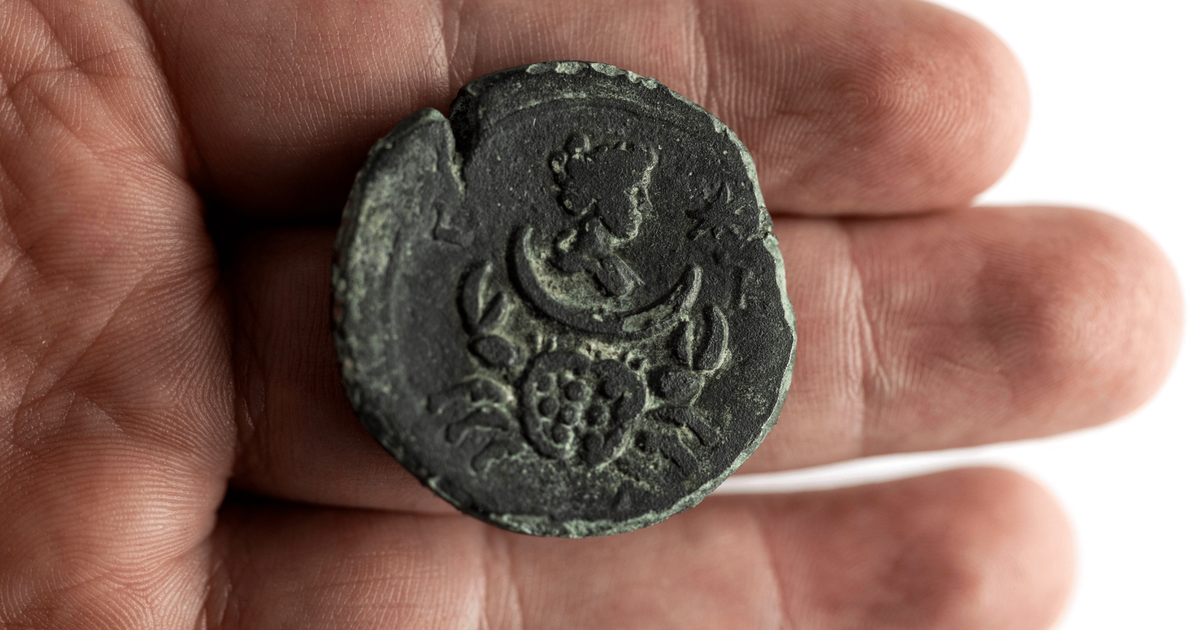ARCHEOLOGY – Dated from the reign of Emperor Antoninus Pius, in the middle of the IIe century of our era, the bronze coin would be part of a monetary series minted with the different signs of the zodiac.
It capsizes the hearts of numismatists in the absence of the tides of the Mediterranean. A bronze coin minted in Alexandria in 146, during the reign of Roman Emperor Antoninus Pius (138-161 AD) has been discovered in the Mediterranean Sea, off Haifa, announced the Israel Antiquities Authority (IAA) on Monday.
“Extremely well preserved”, according to Israeli archaeologists, this coin features, on its reverse, Luna, the Roman goddess of the moon, associated with the zodiac sign of Cancer. “This is the first time such a piece has been found off the coast of Israel.“, rejoiced in a press release Jacob Sharvit, the director of the marine archeology department of the Israel Antiquities Authority in a press release.
Series of coins bearing the zodiac
The ancient coinage was discovered during an underwater prospecting campaign conducted by the IAA along the Israeli coast. This «belle» Lunar coin was part of a small monetary treasure lost during the sinking of an ancient ship, the archaeologist told AFP on Tuesday. Among this “core”other well-preserved pieces would also be “very rare”.
According to the IAA, the coin depicting Luna belonged to a series of thirteen coins representing the twelve signs of the zodiac as well as a centerpiece. “Their discovery completes parts of the historical puzzle of the country’s past.added Jacob Sharvit. Identifiable by her crescent moon tiara, Luna is less often represented on Roman monetary material than her brother Sol, the Sun, whose cult will be particularly popular in the IIIe century.
The coin minted with the figure of Luna bore on its obverse the stereotypical effigy of Antoninus Pius. Unlike the majority of his predecessors, the emperor was not a soldier and never took part in battles. “He built temples, theaters, magnificent mausoleums and promoted science and philosophy“, specified the IAA. His peaceful reign is traditionally considered the golden age of the Pax Romana, a period of relative tranquility in the Roman Empire.
